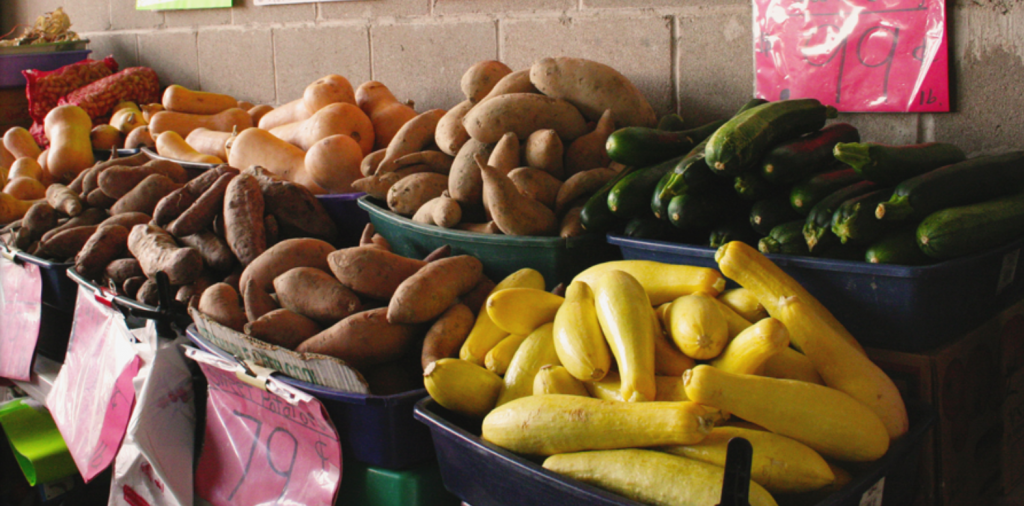
Farmers Markets are packed with fresh summer fruits and vegetables. Watermelons, cantaloupes, fresh corn, cucumbers, tomatoes and squash are just a few of the food items found at many local markets. While, I don’t frequent Farmers Markets often (mainly due to the location from my home and because my local market is not open year-round), I like to go at this time of the year. There are so many varieties of delicious, freshly grown foods (especially fruits and vegetables) and homemade goodies such as jams/jellies, pickles. There are also baked items, which are typically local favorites made by hometown residents. Visiting the market also allows for interaction with farmers, neighbors and friends.
During a recent purchase, a friend noticed that the strawberries he bought from the local grocery store were grown by a local farmer from the county. He was so excited to know that his purchase is helping to support the local farmer in our community.
While, I really like the offerings of a Farmer’s Market, there are some valid reasons to purchase foods there. Firstly, they’re local and local foods are usually fresher and more nutritious. Since a shorter distance is traveled to where the food is sold, most local fruits, vegetables, and dairy products are fresher. Some are harvested within 24 hours of being purchased! This freshness is directly related to its nutritional value, as nutritional quality degrades rapidly after harvest.
At a basic level, when you buy locally, more money stays in the community. Money that stays in the community circulates and benefits all sectors of the local economy and therefore increases the quality of life we enjoy in our communities.
Buying from local farmers helps to preserve farmland and rural culture. Whether it is directly at a farmers market or at the local foods section of a grocery store, buying a local farmer’s product helps keep that farmer farming and in business.
Food produced and marketed locally uses much less energy for transportation and storage. Reducing the energy used means less air and water pollution, which is another way we can help sustain our resources for future generations.
When food is marketed locally, farmers aren’t limited to growing varieties that are bred for long distance shipping and long shelf lives. Local foods are often heirloom varieties that have been passed down through generations, which are usually especially delicious!
Finally, since local foods are not stored for long periods of time or transported long distances, fewer post-harvest treatments are needed. Wax coatings to prevent water loss and fungicides to prevent decay are used to preserve fruits and vegetables that travel long distances.
Local foods are really a win-win and something we can all support.
I encourage you to be a patron at your local Farmer’s Market. If you are unaware of the Farmer’s Markets in your area, here is a helpful resource. The North Carolina Farm Fresh is a directory of pick-your-own farms, roadside farm markets, and farmers markets throughout North Carolina. It is designed to help you find the freshest locally grown fruits, vegetables, plants and other items. Click the following link to find a market in your area: http://www.ncfarmfresh.com/index.asp
Stephanie
Stephanie is the EFNEP Extension Associate for counties in the Southeast Unit.